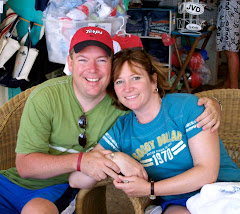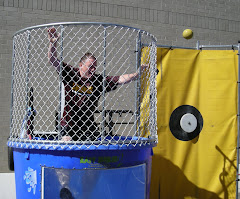Each August since 1998, Beloit College has released the Mindset List, providing a look at the cultural touchstones that shape the lives of students entering college each fall.
It was originally created as a reminder to faculty to be aware of dated references, and quickly became a catalog of the rapidly changing worldview of each new generation.
1. There has always been an Internet ramp onto the information highway.
2. Ferris Bueller and Sloane Peterson could be their parents.
3. States and Velcro parents have always been requiring that they wear their bike helmets.
4. The only significant labor disputes in their lifetimes have been in major league sports.
5. There have always been at least two women on the Supreme Court, and women have always commanded U.S. Navy ships.
6. They “swipe” cards, not merchandise.
7. As they’ve grown up on websites and cell phones, adult experts have constantly fretted about their alleged deficits of empathy and concentration.
8. Their school’s “blackboards” have always been getting smarter.
9. “Don’t touch that dial!”….what dial?
10. American tax forms have always been available in Spanish.
11. More Americans have always traveled to Latin America than to Europe.
12. Amazon has never been just a river in South America.
13. Refer to LBJ, and they might assume you’re talking about LeBron James.
14. All their lives, Whitney Houston has always been declaring “I Will Always Love You.”
15. O.J. Simpson has always been looking for the killers of Nicole Simpson and Ronald Goldman.
16. Women have never been too old to have children.
17. Japan has always been importing rice.
18. Jim Carrey has always been bigger than a pet detective.
19. We have never asked, and they have never had to tell.
20. Life has always been like a box of chocolates.
21. They’ve always gone to school with Mohammed and Jesus.
22. John Wayne Bobbitt has always slept with one eye open.
23. There has never been an official Communist Party in Russia.
24. “Yadda, yadda, yadda” has always come in handy to make long stories short.
25. Video games have always had ratings.
26. Chicken soup has always been soul food.
27.
The Rocky Horror Picture Show has always been available on TV.
28. Jimmy Carter has always been a smiling elderly man who shows up on TV to promote fair elections and disaster relief.
29. Arnold Palmer has always been a drink.
30. Dial-up is soooooooooo last century!
31. Women have always been kissing women on television.
32. Their older siblings have told them about the days when Britney Spears, Justin Timberlake and Christina Aguilera were Mouseketeers.
33. Faux Christmas trees have always outsold real ones.
34. They’ve always been able to dismiss boring old ideas with “been there, done that, gotten the T-shirt.”
35. The bloody conflict between the government and a religious cult has always made Waco sound a little whacko.
36. Unlike their older siblings, they spent bedtime on their backs until they learned to roll over.
37. Music has always been available via free downloads.
38. Grown-ups have always been arguing about health care policy.
39. Moderate amounts of red wine and baby aspirin have always been thought good for the heart.
40. Sears has never sold anything out of a Big Book that could also serve as a doorstop.
41. The United States has always been shedding fur.
42. Electric cars have always been humming in relative silence on the road.
43. No longer known for just gambling and quickie divorces, Nevada has always been one of the fastest growing states in the Union.
44. They’re the first generation to grow up hearing about the dangerous overuse of antibiotics.
45. They pressured their parents to take them to Taco Bell or Burger King to get free pogs.
46. Russian courts have always had juries.
47. No state has ever failed to observe Martin Luther King Day.
48. While they’ve been playing outside, their parents have always worried about nasty new bugs borne by birds and mosquitoes.
49. Public schools have always made space available for advertising.
50. Some of them have been inspired to actually cook by watching the Food Channel.
51. Fidel Castro’s daughter and granddaughter have always lived in the United States.
52. Their parents have always been able to create a will and other legal documents online.
53. Charter schools have always been an alternative.
54. They’ve grown up with George Stephanopoulos as the Dick Clark of political analysts.
55. New kids have always been known as NKOTB.
56. They’ve always wanted to be like Shaq or Kobe: Michael Who?
57. They’ve often broken up with their significant others via texting, Facebook, or MySpace.
58. Their parents sort of remember Woolworths as this store that used to be downtown.
59. Kim Jong-il has always been bluffing, but the West has always had to take him seriously.
60. Frasier, Sam, Woody and Rebecca have never Cheerfully frequented a bar in Boston during primetime.
61. Major League Baseball has never had fewer than three divisions and never lacked a wild card entry in the playoffs.
62. Nurses have always been in short supply.
63. They won’t go near a retailer that lacks a website.
64. Altar girls have never been a big deal.
65. When they were 3, their parents may have battled other parents in toy stores to buy them a Tickle Me Elmo while they lasted.
66. It seems the United States has always been looking for an acceptable means of capital execution.
67. Folks in Hanoi and Ho Chi Minh City have always been able to energize with Pepsi Cola.
68. Andy Warhol is a museum in Pittsburgh.
69. They’ve grown up hearing about suspiciously vanishing frogs.
70. They’ve always had the privilege of talking with a chatterbot.
71. Refugees and prisoners have always been housed by the U.S. government at Guantanamo.
72. Women have always been Venusians; men, Martians.
73. McDonalds coffee has always been just a little too hot to handle.
74. “PC” has come to mean Personal Computer, not Political Correctness.
75.
The New York Times and the
Boston Globe have never been rival newspapers.
Copyright© 2011 Beloit College














 their way in and out of class (and for you to place papers in that you collect during class) and the other for you to store graded papers until you return them, on a table along the side wall near the entrance to your classroom. You'll need a pair of trays for each class period or for each subject if you teach in a self-contained classroom.
their way in and out of class (and for you to place papers in that you collect during class) and the other for you to store graded papers until you return them, on a table along the side wall near the entrance to your classroom. You'll need a pair of trays for each class period or for each subject if you teach in a self-contained classroom.  prevent trays/baskets from being knocked over and save floor space by mounting plastic wall file holders--available at most office supplies stores--to the wall. You'll need a separate container for each category of administrative papers. Here's a possible breakdown:
prevent trays/baskets from being knocked over and save floor space by mounting plastic wall file holders--available at most office supplies stores--to the wall. You'll need a separate container for each category of administrative papers. Here's a possible breakdown:  and update information using wet-erase markers. Next, set up boxes or wall file holders, one per subject, beneath the calendar. Each time you distribute a handout in class, file extra copies in a folder within the proper box or file holder. Now when students return from absences, they just need to refer to the calendar to see what assignments they missed, and reach into the appropriate folder to obtain them.
and update information using wet-erase markers. Next, set up boxes or wall file holders, one per subject, beneath the calendar. Each time you distribute a handout in class, file extra copies in a folder within the proper box or file holder. Now when students return from absences, they just need to refer to the calendar to see what assignments they missed, and reach into the appropriate folder to obtain them. 
















